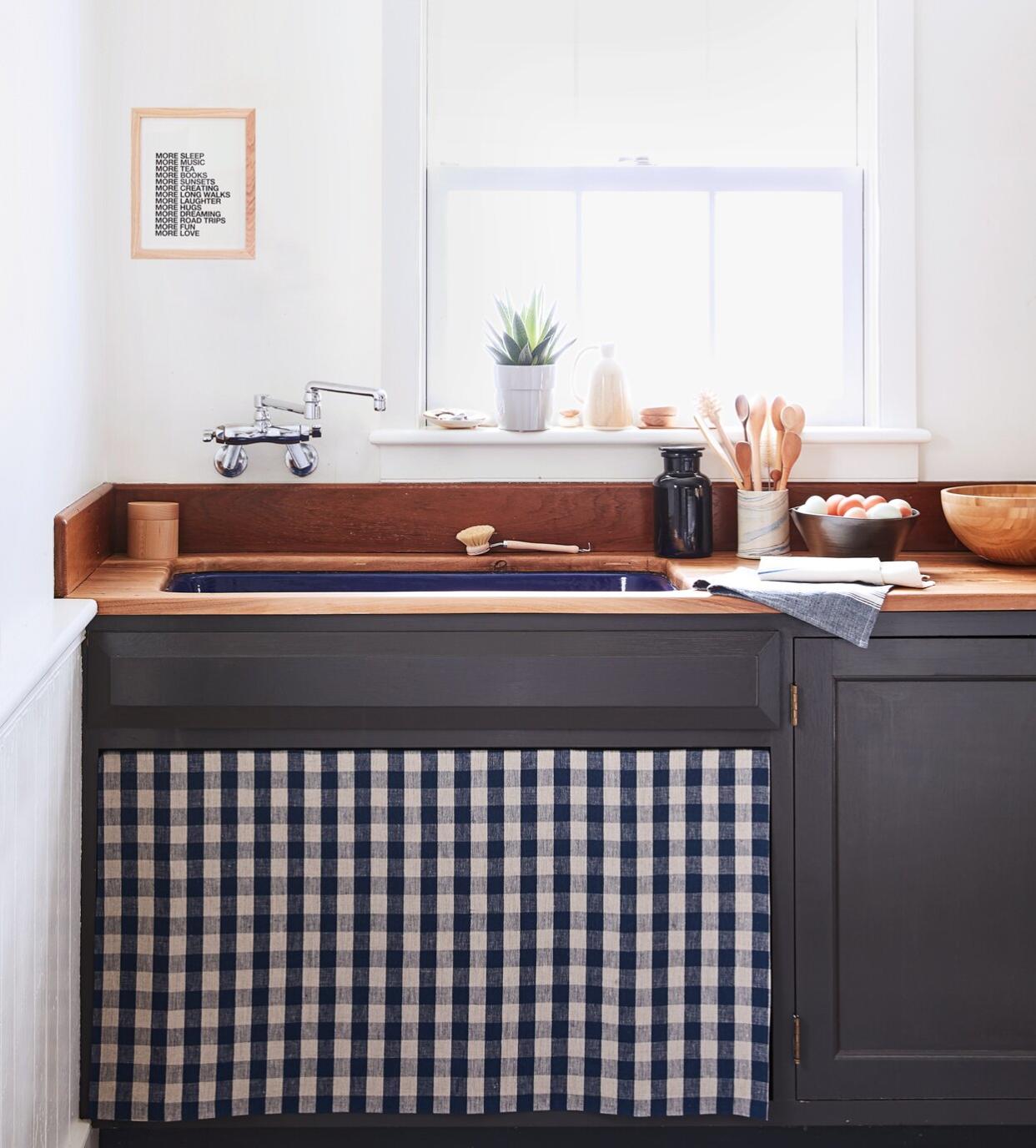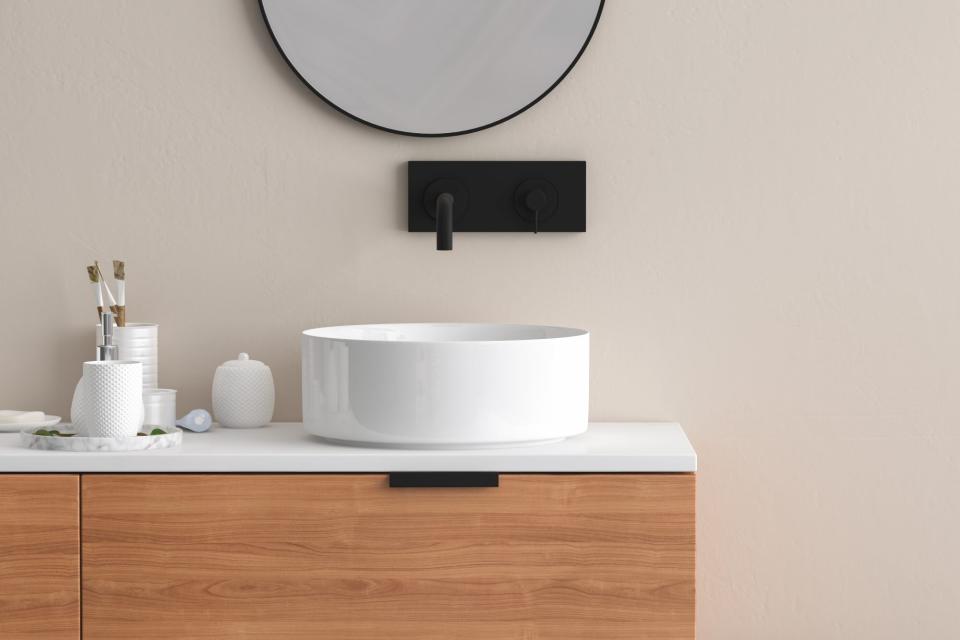7 Things You Should Never Store Under Your Kitchen or Bathroom Sinks

Lennart Weibull
The space under your kitchen or bathroom sink—inside a lower cabinet or vanity—may seem like a savvy place to stash certain items (out of sight, out of mind!), but not everything can be safely placed in these spots. The dark and oftentimes damp conditions can create a nasty breading ground for mold and mildew, which can ruin certain materials. These are the items that cleaning professionals say you should never store in your under-the-sink cabinet (and where you should re-home these things, instead).
Related: Learn How to Organize the Space Beneath Your Kitchen Sink
Items That Shouldn't Be Stored Under the Kitchen Sink
While Jennifer Rodriguez, the chief hygiene officer at Pro Housekeepers, says it makes sense to use the cabinets under the kitchen sink for certain miscellaneous items that don't fit anywhere else—like trash bags and extra cleaning supplies—certain things should never see the interior of this space.
Small Kitchen Appliances
Your crock pot, pressure cooker, and blender are better off elsewhere, says Rodriguez. "They could get damaged by any leaks coming from the sink," she says. "It's best to put them in a closet in a plastic bin." If you don't have the closet space, a garage or basement shelf will also do the trick—and might even make them more accessible.
Paper Products
It may seem like the space under your kitchen sink would be a great place to keep paper towels, paper bags, or napkins handy, but just like electronics, they are in danger of being destroyed by moisture (think leaky pipes). If you have a pantry, linen closet, or even a shelf in the garage, you should opt to keep your extra paper goods there.
Dishwasher Pods
Storing your dishwasher pods under your sink, which is next to the dishwasher in most kitchens, is a natural choice (easy access!), but Rodriguez says it isn't the safest one, especially if you have pets or children. "The best place for these is in the laundry room on a shelf that is high," she says, noting to put pods in kid-safe containers for added security.
Cleaning Products
Another no-no under-the-sink item for families with kids? Cleaning supplies. "These should be kept away from children as a general rule of thumb," Rodriguez says. "Even if they're natural, they could cause harm to young children and pets. It's best to keep these in the garage or laundry area inside a plastic container."
Onions or Potatoes
You might have grown up in a household where storing onions and potatoes under the sink was the norm—but the space under the kitchen sink is no place for food items. Instead, these perishables should be kept somewhere dry, dark, and cool—follow our storage tips for onions and potatoes for the best results.

GETTY IMAGES
Items That Shouldn't Be Stored Under the Bathroom Sink
Organizing 101, says Ben Soreff, a professional organizer affiliated with House to Home Organizing, dictates that the items we use most often should be readily accessible—which is why we tuck many of our daily essentials under the bathroom sink. But not all of your favorite health and beauty items are safe there. Similarly to its kitchen counterpart, the space under your bathroom sink is more prone to leaks and mold.
Linens
Towels, washcloths, and extra bathmats are susceptible to mildew, and when stored under your sink—a dark, enclosed area—growth can ensue. If you have the room, it's best to keep these items neatly folded in a linen or hall closet.
Makeup
Storing makeup under the sink isn't technically unsafe, but ultimately, this isn't the best place for your product arsenal. A dry, cool place (away from moisture and heat) is better. What you can place under the bathroom sink, however, are your hair supplies. "Typically, awkward and large items work well under the sink," he says, citing hair care bins and hot tools like blow dryers and curling irons. Make sure these essentials are easily accessible by storing them in bins or baskets (preferably with lids to protect them from any leaks).

